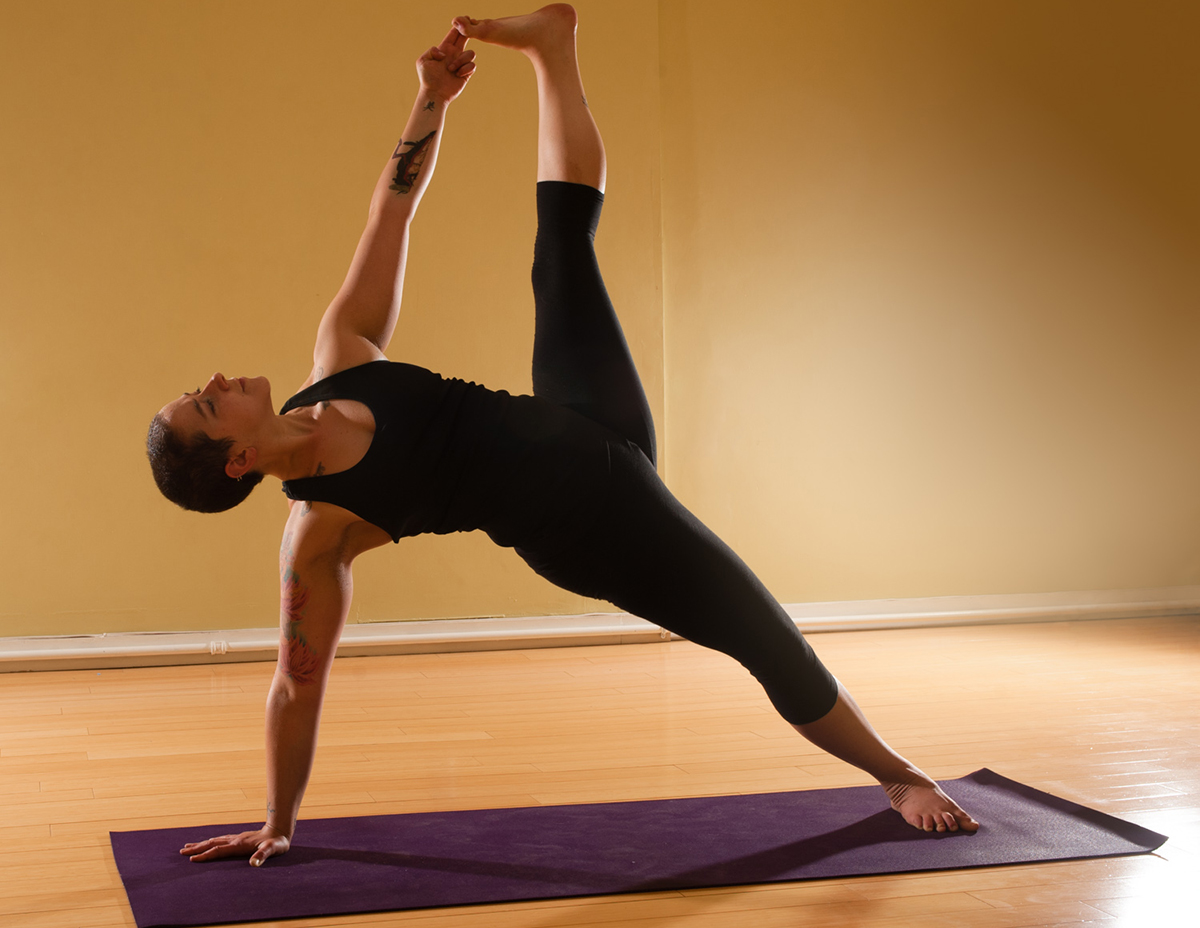Local Fitness Studios Are Embracing the LGBTQ Community

Jade Sylvan/Photo by Caleb Cole
At first glance, Swet Studio looks like many of Boston’s boutique gyms. The differences, really, are in the details.
The South End spot’s bathrooms and changing areas are gender-neutral. Registration forms list identities beyond male and female. On the website, only a subtle footnote reveals what could be easily missed: While everyone is welcome, the studio is dedicated to the LGBTQ community.
“I just wanted to create a place where people are aware of the fact that we accept anyone and everyone. We’re open. We don’t judge anyone,” says owner Silviya Mihaylova. “I felt like in the fitness industry, there wasn’t a place that stood behind that [concept].”
Swet, which opened a year ago, may be Boston’s first studio devoted to LGBTQ clients, but a growing number of individual instructors and classes are catering to the community. Among them: Colorful Community Yoga, for people of color and the queer community, at Cambridge’s Art & Soul; an LGBTQ-focused running club, the Frontrunners, that’s been in operation since 1979; and Queer Yoga at Somerville’s Samara Yoga. Swet is also adding a new community class, called “Namastgay,” that’s specifically for LGBTQ yogis, Swet members or not.
Jade Sylvan, who teaches Samara’s class, says their goal is offering refuge to a population that has been largely overlooked in the fitness world.
“There’s a stereotype about people who are into yoga: They’re white, they’re straight, they’re skinny, they’re cis-female,” Sylvan says. “Yoga has been extremely helpful for me, not only just with my body and my own journey with depression and anxiety and things like that, but also in my own journey in accepting myself for who I am and being out and proud.”
Feeling comfortable in a body-focused setting, Sylvan says, can also be immensely helpful for a group of people who are sometimes made to feel that what they do with their bodies is wrong—and a group of people who face a number of health issues, including body image challenges and eating disorders.
“It’s important for people to do things that are physical and to connect with their body,” Sylvan says. “For a population where that very connection has been traumatic throughout their lives for whatever reason, I know that that can be scary and that can be difficult.”
Mihaylova makes a similar point, noting that the little details that differentiate Swet—including its non-gendered bathrooms—are actually some of the most impactful for its customers.
“It’s very important when you go to work out not to have to worry about expressing yourself,” Mihaylova says. “When you go and you work out, you want to feel comfortable instead of worrying [about], which bathroom do I go into?”
It’s also important, Sylvan says, to simply feel welcome. Queer-focused classes bring together students who—while incredibly diverse—are united by a common thread of experience, and who may be looking for a home outside of mainstream studios.
“Coming into a yoga class is vulnerable. You’re going to be in positions that you normally never would be,” Sylvan says. “Anything I can do to help minimize all of the other vulnerabilities that might make the class seem too scary or outside of reach for people is great.”


